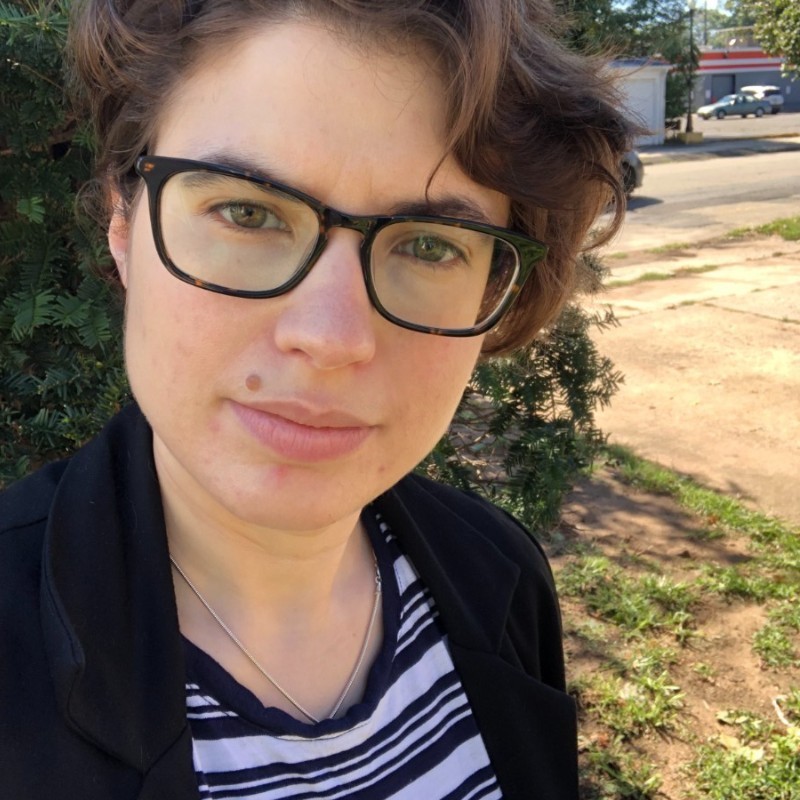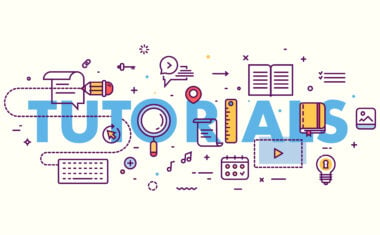How To Become a Full Stack Developer [2023 Guide]

In this article
Full stack developers are among the most sought after professionals in software development. Fluent in both frontend and backend web development, they are skilled programmers who are also knowledgeable about user-facing design principles. Because of this valuable set of skills, the field is seeing higher than average job growth, with LinkedIn ranking it among the top jobs this year.
What Does Full Stack Mean?

To understand the meaning of “full stack,” it’s important to first understand web development. Web development has two components: the backend and the frontend. The former is often referred to as the server-side and comprises all the behind-the-scenes elements needed to power a website or application. The latter is referred to as the client-side and comprises everything a user sees and interacts with. The full stack, then, is both frontend and backend development — it refers to all the hidden and public-facing elements that power websites, apps, and platforms.
What Does a Full Stack Developer Do?

Where a frontend developer might strictly work on the programming of user interfaces and a backend developer might focus on APIs, operating systems, and databases, a full stack web developer is someone who can do both. Their skill set allows them to move seamlessly between the frontend and backend, which makes them highly valued and in-demand tech professionals.
About the Role of Full Stack Developer
Full stack developers have a functional knowledge of all stages of the software development process. But this doesn’t mean that they’re a one person show who can do everything themselves. Organizations often use their full stack developers in different ways depending on their development needs.
Get To Know Other Software Engineering Students
Dave McConeghy
Software Engineering Career Track Student at Springboard
Pritisha Kumar
Software Engineer at Dialpad
Alyssa Menes
Software Engineer at Progyny
Full Stack Developer Job Description
A full stack developer’s job description can vary greatly depending on the type of organization they join. At a startup, they might be in the programming and UX weeds — managing servers, optimizing interfaces for web browsers, working with user interface design patterns, and documenting information for deployment, maintenance, and version control.
At a larger organization, full stack developers might take on more of a project management role where using their knowledge of the complete web development process, they can help manage other coding and design professionals and guide teams through delivery cycles.
Full Stack Developer Responsibilities
The typical full stack developer job listing might contain the following responsibilities:
- Managing the complete software/web development cycle from inception to deployment
- Developing and managing the server/hosting environment
- Understanding and incorporating both customer and business needs into the development of software and web applications
- Overseeing and providing feedback to management during development process
- Testing and debugging software
- Considering security and scalability when developing software and platforms
Full Stack Developer Salary

Full stack developers are usually well compensated because of industry demand for their unique set of skills. The average salary of full stack developers can vary depending on years of experience, education, organization, and market.
In the United States, the average salary for an entry-level full stack developer is around $73,000, according to Glassdoor.
The national average salary for a mid-level full stack developer is around $99,300, according to Glassdoor.
The national average salary for a senior full stack developer is around $114,400, according to Glassdoor, with an upper range of $160,000.
What It’s Like Working as a Full Stack Developer

A typical day will be different for every full stack developer depending on the size and type of organization they work for. That said, below are a few common daily work experiences shared by full stack developers.
Be prepared to draw on any skill at any moment. “Even the simplest application requires you to know an unbelievable amount,” according to developer Alex Swan. “You have to know how HTML words, how CSS can be used to style HTML in one of a million ways, then maybe you want some kind of interaction. Immediately you are confronted with hundreds of web frameworks/libraries, all with different practices for essentially doing the same thing.” This is all par for the course for a full stack developer who, in attempting to address one feature of a project, will have to engage a range of frontend and backend tools and technologies, often all on the same day.
Sharing and working solo. Most teams that full stack developers work on start their work day with a stand-up meeting. “Every team member on your project stands together in a circle and catches the rest of the team up on the status of their tasks,” according to developer Don Burks. “One by one, each person reports on what they accomplished yesterday, what their priorities are for today, and if they’re stuck on anything.” This offers an opportunity for team members to collaborate and help each other before everyone breaks off to work on their own.
Filling the void. Full stack developers are often used to plug gaps in an organization’s skill set. Developer John Turner said that his days can vary depending on where he is needed — he might spend one day focused on architecture design, another day providing data to marketers, and another assisting a fellow developer in debugging audio software. “None of this should be read as though I’m some ninja programmer that’s hyper skilled in all of these areas,” Turner said. “I just happen to have been lucky enough to have been exposed to a wide array of programming situations that makes me satisfactory at them without being particularly well specialized in any of them.”
What It Takes To Become a Full Stack Developer
While there is no set path to becoming a full stack developer, below are some of the common skills and requirements that hiring managers seek out.
Education
Most full stack developers hold a bachelor’s degree in computer science, information technology, mathematics, or a related field. But a significant number of developers don’t hold a relevant degree at all. A 2019 career survey found that only 62% of software engineers had come from a traditional tertiary educational background and instead filled in their skills gaps with an online course or bootcamp.
Skills

Full stack developers need to have a working proficiency with both frontend and backend development skills. This means knowledge of programming languages and database tools such as Ruby, MySQL, Javascript, HTML, CSS, Python, MongoDB, PHP, Java, SQL, and AWS, in addition to soft skills that enable them to project manage and communicate with teams and stakeholders.
Qualifications
When it comes to full stack development, the strongest proof that you’re qualified for the job is a portfolio. While certificates and college degrees might show hiring managers that you’ve passed exams, a portfolio of projects you’ve worked on will show them that you have what it takes to get the job done.
Languages and Technologies To Know
In addition to the aforementioned programming languages, full stack developers are expected to be comfortable with using tools, technologies, and platforms such as JQuery, Angular, React, Git, Oracle, Javascript frameworks, GitHub, and Stack Overflow.
How To Become a Full Stack Developer
-
Take a Course
-
Build a Portfolio
-
Start From the Bottom
-
Work on Any Relevant Project You Can
-
Network Like Crazy
Below are some tips for building the skills and network that will help you become a full stack developer.
Take a Course
Holding a bachelor’s degree in computer science or a related field is often a good place to start. But, given how quickly programming languages and web development technologies evolve, it can be useful to take an online course or bootcamp to ensure that you’re up to speed on the latest and most relevant tools, languages, and best practices.
Build a Portfolio
It’s one thing to have an impressive CV. It’s another to be able to prove that you can do what your CV claims. A strong portfolio offers hiring managers evidence of your capabilities — you get to showcase previous work samples, and your portfolio site can itself be an example of your web development acumen.
Start From the Bottom
Junior full stack developer positions can be hard to come by, so consider applying to software engineering (see here what a software engineer does) or web developer internships or starting in an entry level role in a related field that will give you exposure and experience with the problems and skills a full stack developer deals with.
Related Read: Full-Stack Developer vs. Software Engineer: Complete Comparison
Work on Any Relevant Project You Can
If you aren’t currently employed as a full stack developer, there are still ways to gain full stack web development experience. For example, bootcamps and online courses offer opportunities to work on ambitious capstone projects that require work on both the frontend and backend; a web developer assigned to work on backend development can find ways to work on projects that give them exposure to frontend development; and with any team project, look for ways to learn from other developers or volunteer your own web development skills.
Network Like Crazy

One of the most common ways in which software developers learn about job opportunities is through word-of-mouth and referrals. Because of this, it’s important to build out a network of industry mentors and peers who, in addition to sharing job news, can also offer professional guidance.
Full Stack Developer FAQs (Short Q&A)
Still have questions about what it takes to become a full stack developer? Check out our answers below.
How Hard Is It To Become a Full Stack Developer?
There’s no getting around it — becoming a full stack developer takes work, but the resulting career can be incredibly rewarding.
“The thing is, if you’re not passionate about computer programming, it can become a nightmare,” said Sebastian Belmar, a Springboard graduate who now works as a full stack developer at a San Francisco startup. “But, if you think you have something to add, or if you think you can fall in love with coding, you can learn.”
Do Full Stack Developers Get Paid More?

Salaries for full stack developers can vary widely depending on the industry, city, and organization for which they work. Full stack developers typically have a comparable salary to their frontend and backend engineering counterparts.
Is Coding Required for a Full Stack Developer?
Coding is a core skill required of all full stack developers. Most full stack developers are fluent in multiple programming languages.
How Long Does It Take To Become a Full Stack Developer?
A comprehensive bootcamp requires a six month commitment, with 20-25 hours of study a week.
Can You Become a Full Stack Developer With No Experience?
Hiring managers tend to favor full stack developers who have prior experience in the role, but it is possible to land a job even if you’re fresh out of college or have recently graduated from a bootcamp. The key is to ensure that your full stack development skills are up-to-date and that you have experience working on relevant projects. Whatever you lack in industry experience, make up for it through capstone or personal projects and by showing your willingness to grow and learn.
Since you’re here…
No one wakes up knowing how to code – they learn how to code. Tens of thousands of students have successfully learned with our courses, like our Software Engineering Bootcamp. If you’re a total newbie, our Software Engineering Career Track Prep Course will be a perfect fit. Let’s do this!



![How to Land an Entry-level Software Engineering Job [7 Options]](https://www.springboard.com/blog/wp-content/uploads/2022/09/software-engineering-feaured-image-380x235.png)

